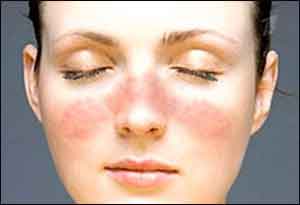- Home
- Editorial
- News
- Practice Guidelines
- Anesthesiology Guidelines
- Cancer Guidelines
- Cardiac Sciences Guidelines
- Critical Care Guidelines
- Dentistry Guidelines
- Dermatology Guidelines
- Diabetes and Endo Guidelines
- Diagnostics Guidelines
- ENT Guidelines
- Featured Practice Guidelines
- Gastroenterology Guidelines
- Geriatrics Guidelines
- Medicine Guidelines
- Nephrology Guidelines
- Neurosciences Guidelines
- Obs and Gynae Guidelines
- Ophthalmology Guidelines
- Orthopaedics Guidelines
- Paediatrics Guidelines
- Psychiatry Guidelines
- Pulmonology Guidelines
- Radiology Guidelines
- Surgery Guidelines
- Urology Guidelines
New guidelines published to improve diagnosis and treatment of lupus

A University of Birmingham academic has led the authorship of the UK's first guideline on the care of adults with systemic lupus erythematosus (lupus).
Published today in Rheumatology, the guideline has been created by the British Society of Rheumatology, and covers diagnosis, assessment, monitoring and treatment of patients with mild, moderate and severe lupus.
Lead guideline author Caroline Gordon, a lupus expert and Professor of Rheumatology at the University of Birmingham, said: "Lupus can affect any part of the body and can be difficult to diagnose and treat. It is more common than many people realise, has a major impact on the health and activities of individuals with the disease and it is associated with a significant risk of dying prematurely - reducing average lifespan by about 25 years.
"This guideline is essential because it provides advice on how to diagnose the condition and then how to assess the disease and determine what type of treatment will be most suitable, whether people have common manifestations such as skin rashes and arthritis, or less common but potentially more serious problems such as kidney disease."
It is aimed at rheumatologists and clinical nurse specialists in lupus, as well as nephrologists, immunologists, dermatologists, emergency medicine practitioners and GPs.
Professor Gordon adds: "As a result of this guideline I would expect that patients will experience measurable improvements in care.
"With earlier diagnosis and more appropriate treatment we should see more rapid resolution of symptoms, reduction in disease flares and improvements in the quality of life of patients, with less long-term complications of the disease and its treatment and improved survival rates."
The guideline provides advice on how people should be monitored for evidence of improvement or deterioration, encourages the use of a variety of treatments to ensure less reliance on steroids to control symptoms and provides information on which drugs to use for people that do not respond to initial treatment plans.
Importantly, it also emphasises the need for people with the most serious and difficult to control forms of the disease to be referred to specialised lupus centres to access new therapies and multi-disciplinary teams.
It guides the care of patients with common symptoms such as skin rashes and arthritis as well as those with less common but potentially more serious problems like kidney disease.

Disclaimer: This site is primarily intended for healthcare professionals. Any content/information on this website does not replace the advice of medical and/or health professionals and should not be construed as medical/diagnostic advice/endorsement or prescription. Use of this site is subject to our terms of use, privacy policy, advertisement policy. © 2020 Minerva Medical Treatment Pvt Ltd